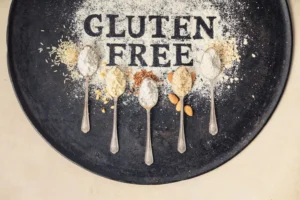Embarking on a gluten-free journey seems like a virtuous choice, right? But hold on—what if I told you there’s more to it? Picture this: the dangers of a gluten-free diet, if not celiac. It’s like a health mystery waiting to be unraveled.
Beyond the trendy facade lies a nuanced landscape of potential risks. So, grab a metaphorical detective hat as we explore the intriguing world of gluten-free living and the suspenseful twists it might hold for your well-being. Let the adventure begin!
Teasing the Suspense: Dangers Lurking Beyond Celiac
Starting a gluten-free lifestyle has become a cultural phenomenon, often perceived as a beacon of health. However, beneath the surface lies a web of intricacies and potential dangers, especially for those who have not been diagnosed with celiac disease. In this exploration, we unveil the suspenseful risks lurking beyond the realms of celiac, delving into the lesser-known facets of gluten-free living.
Teasing the Suspense: Dangers Lurking Beyond Celiac
- Gluten Sensitivity Realities:
- Ever heard of Non-Celiac Gluten Sensitivity (NCGS)? It’s like gluten sensitivity without the official title. No fancy diagnosis, just people feeling off after a gluten party.
- NCGS doesn’t play by the rules, making it a bit tricky to spot. Think stomach troubles, fatigue, and headaches—it’s a whole package deal.
- Nutritional Deficiencies:
- Hold up; cutting out gluten doesn’t automatically make you a nutrition wizard. It turns out that going gluten-free might leave you missing out on essential stuff found in wheat.
- We’re talking B vitamins, iron, and that good ol’ fiber—stuff your body needs. Miss out on these, and you might be heading down a not-so-healthy path.
- Gut Microbiota Impact:
- Picture this: your gut’s like a bustling city, and gluten-free living can shake things up. Your diet affects the cool microbes hanging out there, and a gluten-free switch might disturb the peace.
- Why does it matter? Well, these microbes are like the unsung heroes of your health, helping with digestion, immunity, and whatnot.
- Social and emotional challenges:
- Going gluten-free is more than just swapping bread. Suddenly, dinner plans and BBQs become a puzzle. It’s like being a gluten detective in a world full of pasta and pizza.
- But it’s not just logistics. There’s a real emotional rollercoaster, too. Feeling different or left out can take a toll on the mind, and we’re diving into that side of the gluten-free story.
Related: How long does gluten last on surfaces?
Exploring Non-Celiac Gluten Sensitivity (NCGS)
Addressing gluten sensitivity takes us beyond the familiar territory of celiac disease. Non-Celiac Gluten Sensitivity (NCGS) emerges as a perplexing player in this arena, capturing attention due to its elusive nature. In this exploration, we uncover the nuances of NCGS, shed light on the features that distinguish it from celiac disease, and understand the challenges it presents.
Exploring Non-Celiac Gluten Sensitivity (NCGS)
- Diagnostic Ambiguity:
- NCGS lacks the concrete diagnostic markers seen in celiac disease, making it a condition of considerable ambiguity.
- Diagnosis often relies on the exclusion of celiac disease and wheat allergy, leaving individuals and healthcare providers in a diagnostic gray area.
- Symptoms Beyond the Gut:
- Unlike celiac disease, NCGS doesn’t restrict its impact solely to the digestive system. Individuals may experience a spectrum of symptoms, including fatigue, headaches, joint pain, and mood disturbances.
- Understanding this broad range of symptoms is crucial for a comprehensive grasp of NCGS and its potential effects on overall well-being.
- Role of FODMAPs:
- Fermentable oligosaccharides, disaccharides, monosaccharides, and polyols (FODMAPs) play a role in NCGS symptoms, complicating the picture further.
- Some individuals with NCGS may be sensitive to FODMAPs found in wheat, contributing to gastrointestinal discomfort and emphasizing the need for personalized dietary approaches.
- Management Challenges:
- Managing NCGS involves navigating a complex interplay of dietary adjustments and symptom monitoring.
- In the absence of a specific treatment or cure, individuals often find themselves experimenting with various diets to identify triggers, adding a layer of complexity to the management process.
Related:
Dispelling Myths: Is Gluten-Free Always Healthier?

The whole idea is that kicking gluten to the curb automatically equals a healthier life. But wait a second—is it really that simple? We’re diving into the common belief that going gluten-free is a golden ticket to health, breaking down the myths, and exposing the real story.
Dispelling Myths: Is Gluten-Free Always Healthier?
- Nutrient Shortfalls in Gluten-Free Goodies:
- Surprise! It turns out that a bunch of gluten-free products aren’t packing the nutritional punch you’d expect. Forget the fiber, B vitamins, and iron; some of these alternatives are running on empty.
- If you’re not careful, that gluten-free switch might be setting you up for some nutrient deficiencies. Who saw that coming?
- Processed Pitfalls of Gluten-Free Swaps:
- Gluten-free doesn’t always mean your food is coming from the farm to your plate. Nope, a lot of these substitutes are pumped with added sugars, not-so-healthy fats, and preservatives for that extra pizzazz.
- So, that whole “healthier” vibe? It takes a hit when you’re loading up on processed gluten-free stuff without checking what’s under the hood.
- Weight Woes and Sugar Surprises:
- Some folks hop on the gluten-free train, thinking it’s a shortcut to shedding pounds. Plot twist: gluten-free products might be sneaky calorie bombs with extra sugar.
- Picking gluten-free goodies without a game plan can lead to unexpected weight gain and a date with metabolic troubles. It’s a reminder to be the Sherlock Holmes of your grocery cart.
- Dollars and dining dilemmas:
- Brace yourself for the financial side of things; going gluten-free might give your wallet a workout. Those specialty products don’t come cheap.
- And socially? Well, navigating a gluten-free life might mean playing the odd one out at the dinner table. It’s not just a food choice; it’s a whole lifestyle adjustment.
Related: 9 Foods with Hidden Gluten Ingredients
Gut Microbiota and Gluten: The Intricate Connection
Alright, let’s dive into the intriguing tale of gut microbiota and gluten—a connection that’s way more complex than we might think. Beyond just being a protein we consume, gluten has this intricate relationship with the trillions of microbes hanging out in our gut.
Gut Microbiota and Gluten: The Intricate Connection
- Microbial Diversity and Gluten Metabolism:
- Picture our gut as this bustling city of microbes. Gluten, being the complex protein it is, gets broken down by specific gut bacteria. How these microbes handle gluten impacts the digestion process, and understanding this diversity is key to grasping how we process gluten.
- Immune System Crosstalk:
- The chat between gluten and gut bacteria isn’t just about digestion; it’s a full-on conversation with our immune system. This link influences whether our immune system tolerates gluten or decides to sound the alarms.
- When things go awry, like in celiac disease, this conversation can lead to inflammation and damage in our gut.
- Effects on Gut Barrier Integrity:
- Gluten and gut microbes also team up to play a role in the security detail of our gut—the gut barrier. If this defense system falters, gluten bits might slip through, setting off inflammatory responses.
- Keeping our gut microbes in balance becomes a crucial job to maintain the fort and prevent unwanted symptoms in our gut.
- Potential Implications for Non-Celiac Gluten Sensitivity:
- Now, here’s the plot twist: this connection might have something to say about non-celiac gluten sensitivity (NCGS). How our gut microbes influence how we react to gluten, especially for those without celiac disease, is still a mystery being unraveled.
- Solving this mystery could give us a broader understanding of gluten-related disorders and open up doors for new ways to tackle them.
Related: Glutened; Symptoms, Definition, and Treatment
Balanced Approach: Optimal Gluten Consumption for Non-Celiacs

Let’s talk strategy when it comes to gluten—not the all-or-nothing approach, but a balanced game plan for optimal consumption, especially for those who aren’t dealing with celiac disease.
Balanced Approach: Optimal Gluten Consumption for Non-Celiacs
- Mindful Portion Control:
- Optimal gluten consumption for non-celiacs begins with a mindful eye on portion control. It’s about enjoying gluten-containing foods without overindulging, striking a balance that aligns with individual dietary needs and preferences.
- Whole Grains and Nutrient-Rich Choices:
- Choosing whole grains over their refined counterparts adds an extra layer of nutritional goodness. Whole wheat, barley, and oats provide essential nutrients like fiber, B vitamins, and minerals, contributing to a well-rounded and balanced diet.
- Diversifying gluten sources:
- Shake things up by diversifying gluten sources. Instead of relying on a single grain, incorporate a variety of gluten-containing foods into your diet. This not only enhances nutritional diversity but also minimizes the risk of overconsumption of specific gluten proteins.
- Listening to Your Body:
- Optimal gluten consumption involves tuning in to your body’s signals. If you notice any adverse reactions or sensitivities, it’s essential to address them and consider adjustments in your gluten intake. Listening to your body fosters a personalized and balanced approach.
It’s crucial to approach dietary choices with discernment. The exploration of the dangers of a gluten-free diet, if not celiac, sheds light on potential pitfalls. Straying from gluten without a medical necessity may lead to unintended consequences, including nutritional deficiencies and an imbalanced lifestyle. A balanced approach to nutrition, considering the potential risks associated with unnecessary dietary restrictions, ensures a path to wellness that is both sensible and sustainable.
